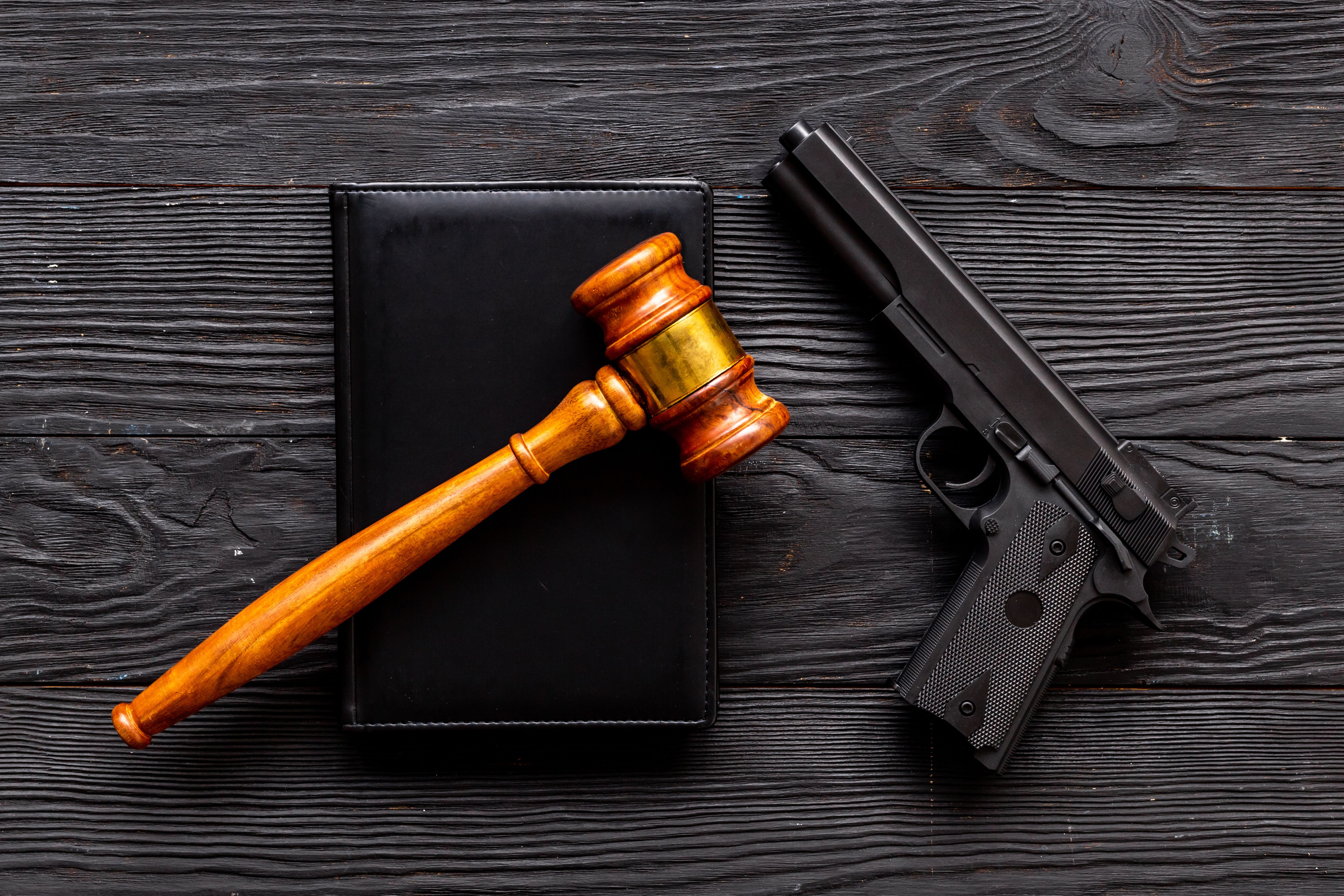- Case-Based Roundtable
- General Dermatology
- Eczema
- Chronic Hand Eczema
- Alopecia
- Aesthetics
- Vitiligo
- COVID-19
- Actinic Keratosis
- Precision Medicine and Biologics
- Rare Disease
- Wound Care
- Rosacea
- Psoriasis
- Psoriatic Arthritis
- Atopic Dermatitis
- Melasma
- NP and PA
- Skin Cancer
- Hidradenitis Suppurativa
- Drug Watch
- Pigmentary Disorders
- Acne
- Pediatric Dermatology
- Practice Management
- Prurigo Nodularis
- Buy-and-Bill
News
Article
Dermatology Times
Can I Ask About Gun Ownership for My Safety?
Author(s):
Dr Derm has recently been sued by a patient for simply asking the question “Do you own a gun?” He seeks legal advice.
“Dr Derm” has become increasingly concerned about the number of mass shootings in the US. He has established an office policy that has his staff ask patients whether they own a gun. If a patient acknowledges having a weapon, they are not allowed to bring the weapon to the office. Dr Derm has recently been sued by a patient for simply asking the question “Do you own a gun?” He seeks legal advice. Is Dr Derm not allowed to ask such a simple question?
Such a question arose in Florida. In Wollschlaeger v Governor of Florida, physicians and physician interest groups brought an action against the governor of Florida alleging that Florida’s 2011 Privacy of Firearm Owners Act (the “Act”), which prohibits asking patients whether they own guns, violated the physicians’ constitutional right to freedom of speech. The Act, as originally written, restricted irrelevant inquiry and record-keeping by physicians about patients’ use and possession of firearms. The Act instructed health care providers to refrain from inquiring about whether the patient owns firearms unless the provider believes in good faith that the information is relevant to the patient’s medical care or safety or to the safety of others. Similarly, the Act stated that health care providers may not intentionally enter information about a patient’s ownership of firearms into the patient’s medical record that the practitioner knows is not relevant to the patient’s medical care or safety or to the safety of others.
The Act also stated that a physician shall not discriminate against a patient on the basis of the patient’s ownership of firearms and that providers must “refrain from unnecessarily harassing a patient about firearm ownership.” Violations of the Act, as originally ruled, could have lead to disciplinary action including fines, restriction of practice, probation, and suspension or revocation of a medical license.
Four days after the Florida governor signed the Act into law, physicians filed an action alleging that the inquiry, record-keeping, discrimination, and harassment provision of the Act violated, among other things, their First Amendment right to free speech. The court first noted that the essence of the Act was that medical practitioners should not record information or inquire about a patient’s firearm ownership status when doing so is not necessary to provide the patient with good medical care. The court said that the Florida legislature’s motivation for passing the Act was that it had received complaints from patients who claimed they were afraid that their doctors may be sharing their medical information, including information about firearm ownership, with third parties, including “government bureaucrats.” The Act, as originally noted, was meant to protect a patient’s ability to withhold information from his doctor, which would ordinarily be stymied by the power imbalance between doctor and patient.
At the time, the court deemed gun ownership that is not relevant to patient health and safety to be a private issue into which a doctor should not transgress, stating that “the practice of good medicine should not require inquiry into private matters unless such inquiry is necessary for the practice of good medicine.”
In regard to the claim that the Act infringed on physicians’ right to free speech, the court originally stated that the Act was “a valid regulation of professional conduct that has only an incidental effect on physician free speech—it was not a regulation designed to regulate speech.”
The issue at hand was whether the Act was designed to regulate professional conduct of physicians or to regulate their free speech.
In 2017, the United States Circuit Court of Appeals for the Eleventh Circuit overturned the ruling with a 10 to 1 vote. The panel concluded that clinicians could not be threatened with losing their licenses for asking patients if they owned guns to determinesafety and wellbeing of a patient. Members of the medical community arguing the original ruling in a case that came to be known as “Docs v Glocks,” said that questions about gun storage were crucial to public health because of the relationship between firearms and both the suicide rate and the gun-related deaths of children.
If Dr Derm practices in Florida—and perhaps other states—the court would agree that he could counsel patients on gun safety, if he had reason to believe it would impact treatment, safety, and wellbeing of the patient. The federal appeals court ruled 1 part of the original law on patient discrimination was still constitutional. That portion of the law states that Dr Derm can not deny service to patients who own guns.
Reference
Wollschlaeger v. Governor of Florida. ACLU of Florida. October 26, 2020. Accessed November 17, 2023. https://www.aclufl.org/en/cases/wollschlaeger-v-governor-of-florida
David J. Goldberg, MD, JD, is medical director of Skin Laser and Surgery Specialists of New York and New Jersey; director of cosmetic dermatology and clinical research at Schweiger Dermatology Group in New York, New York; and clinical professor of dermatology and past director of Mohs Surgery and Laser Research at the Icahn School of Medicine at Mount Sinai in New York, New York.








